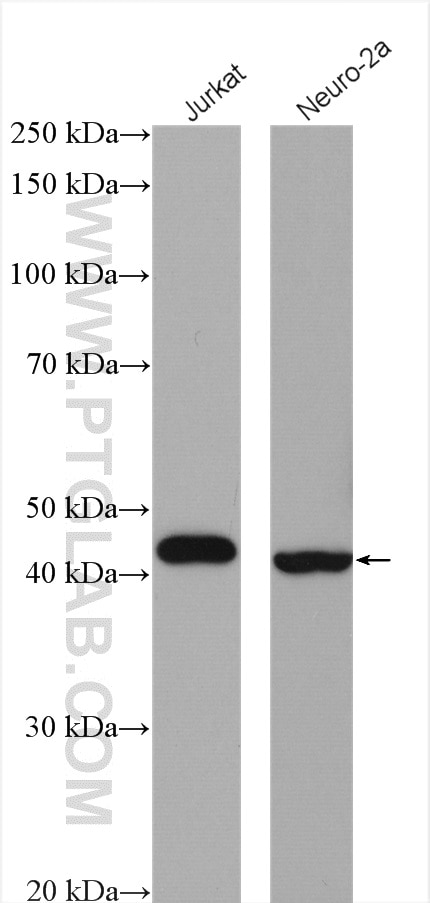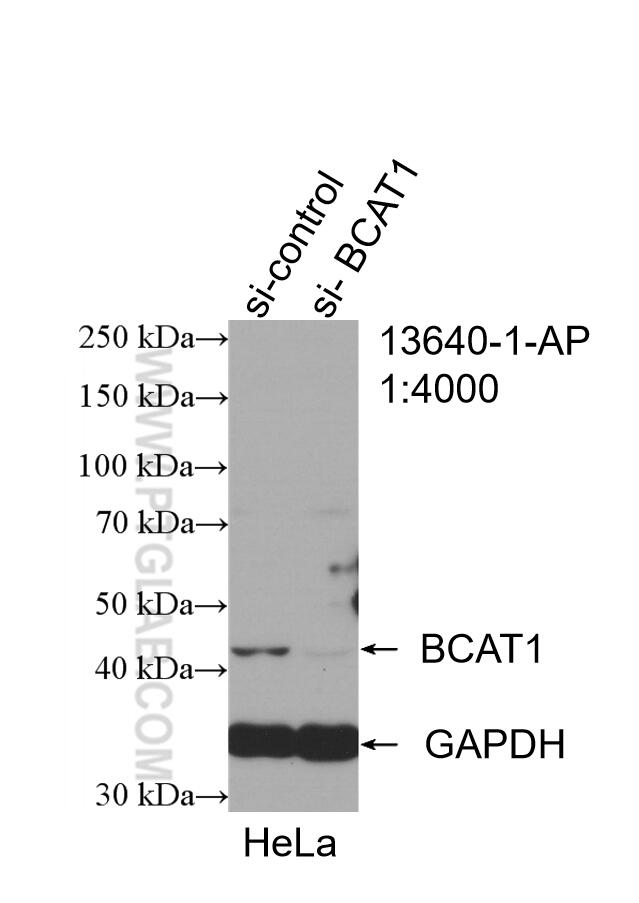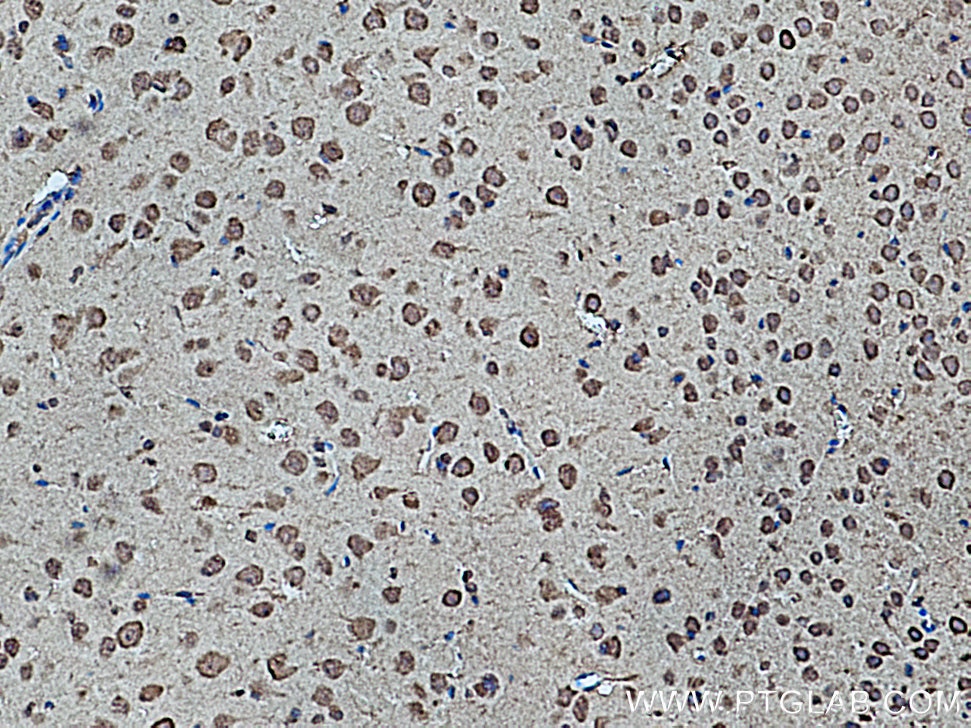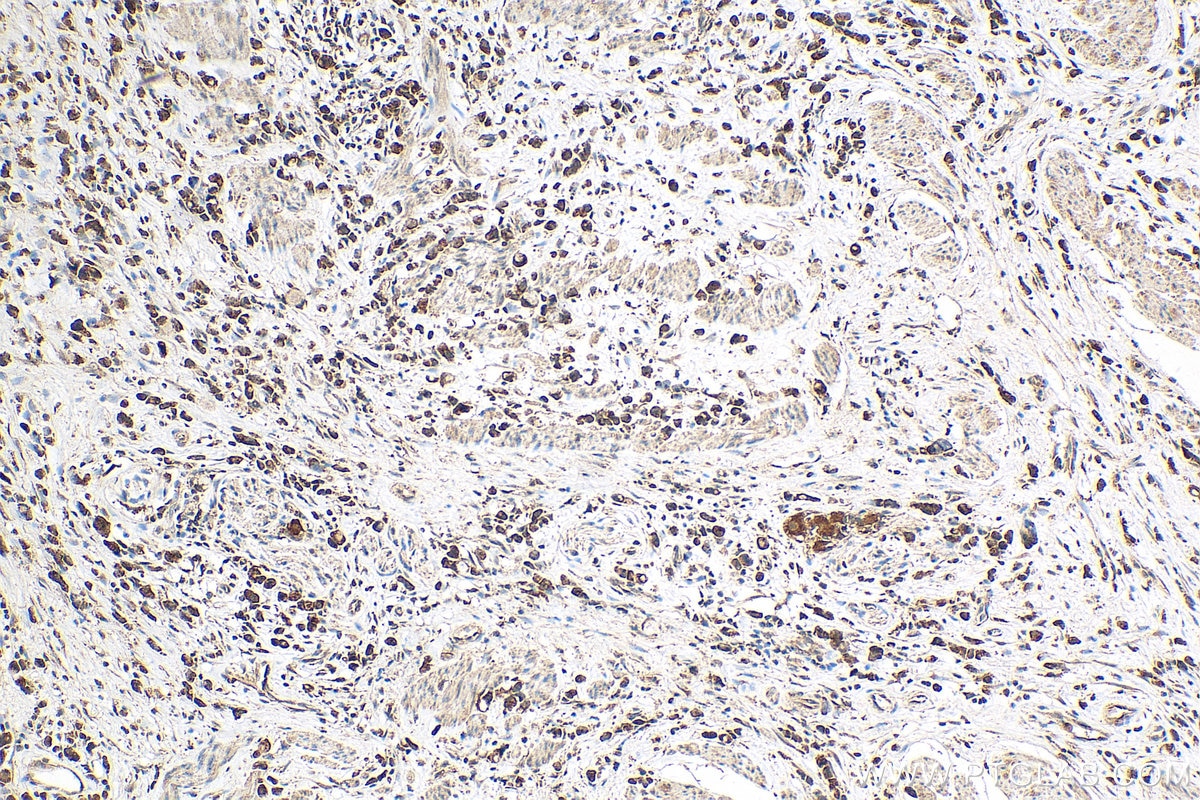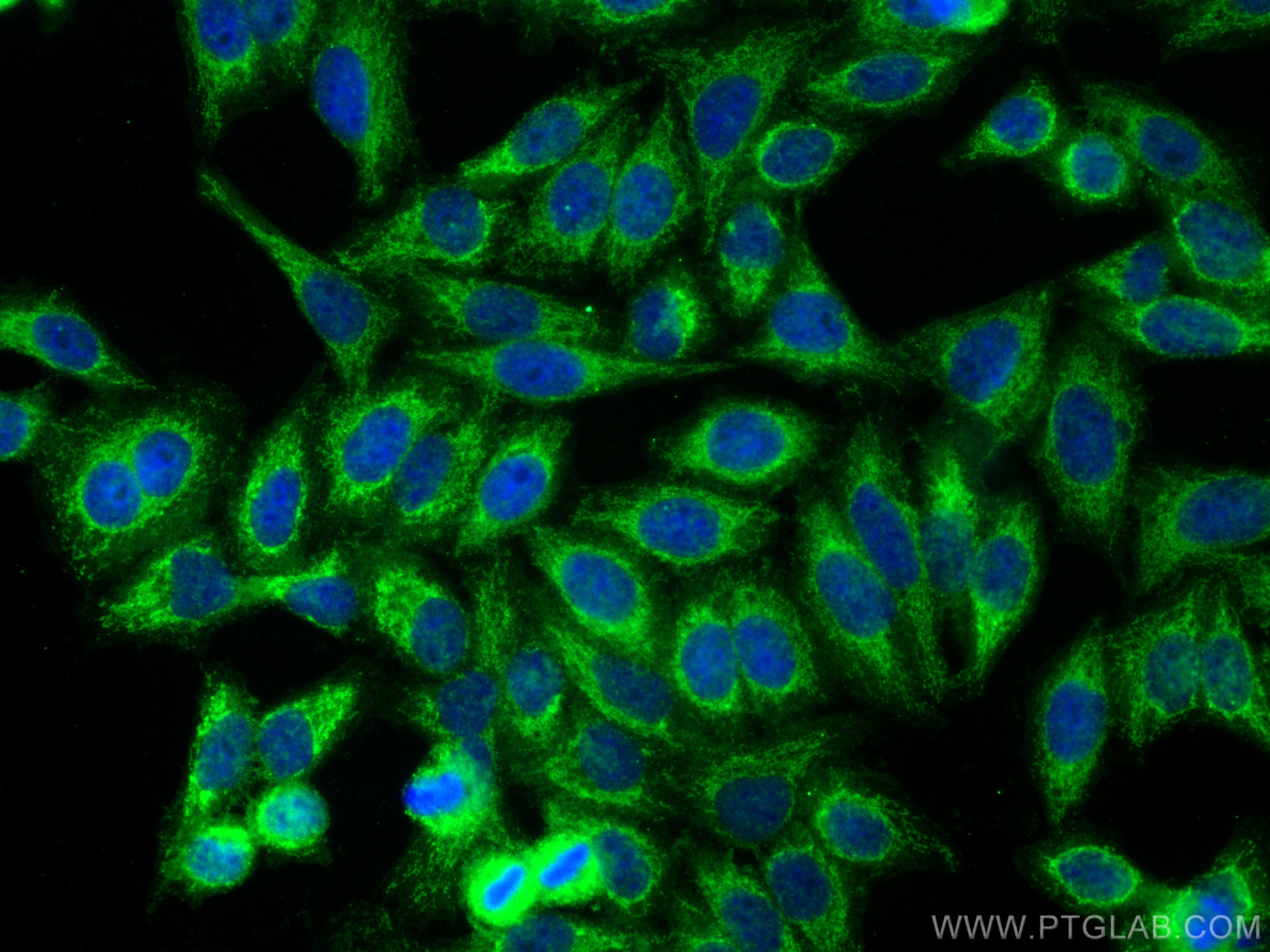Validation Data Gallery
Tested Applications
| Positive WB detected in | Jurkat cells, HeLa cells, Neuro-2a cells |
| Positive IHC detected in | mouse brain tissue, human stomach cancer tissue Note: suggested antigen retrieval with TE buffer pH 9.0; (*) Alternatively, antigen retrieval may be performed with citrate buffer pH 6.0 |
| Positive IF/ICC detected in | HepG2 cells |
Recommended dilution
| Application | Dilution |
|---|---|
| Western Blot (WB) | WB : 1:1000-1:4000 |
| Immunohistochemistry (IHC) | IHC : 1:50-1:500 |
| Immunofluorescence (IF)/ICC | IF/ICC : 1:200-1:800 |
| It is recommended that this reagent should be titrated in each testing system to obtain optimal results. | |
| Sample-dependent, Check data in validation data gallery. | |
Published Applications
| KD/KO | See 9 publications below |
| WB | See 35 publications below |
| IHC | See 13 publications below |
| IF | See 7 publications below |
| IP | See 1 publications below |
Product Information
13640-1-AP targets BCAT1 in WB, IHC, IF/ICC, IP, ELISA applications and shows reactivity with human, mouse, rat samples.
| Tested Reactivity | human, mouse, rat |
| Cited Reactivity | human, mouse, rat |
| Host / Isotype | Rabbit / IgG |
| Class | Polyclonal |
| Type | Antibody |
| Immunogen |
CatNo: Ag4574 Product name: Recombinant human BCAT1 protein Source: e coli.-derived, PGEX-4T Tag: GST Domain: 1-320 aa of BC033864 Sequence: MDCSNGCSAECTGEGGSKEVVGTFKAKDLIVTPATILKEKPDPNNLVFGTVFTDHMLTVEWSSEFGWEKPHIKPLQNLSLHPGSSALHYAVELFEGLKAFRGVDNKIRLFQPNLNMDRMYRSAVRATLPVFDKEELLECIQQLVKLDQEWVPYSTSASLYIRPTFIGTEPSLGVKKPTKALLFVLLSPVGPYFSSGTFNPVSLWANPKYVRAWKGGTGDCKMGGNYGSSLFAQCEAVDNGCQQVLWLYGEDHQITEVGTMNLFLYWINEDGEEELATPPLDGIILPGVTRRCILDLAHQWDTELSLFSINLPDFLQFIYF 相同性解析による交差性が予測される生物種 |
| Full Name | branched chain aminotransferase 1, cytosolic |
| Calculated molecular weight | 320 aa, 36 kDa |
| Observed molecular weight | 43-45 kDa |
| GenBank accession number | BC033864 |
| Gene Symbol | BCAT1 |
| Gene ID (NCBI) | 586 |
| RRID | AB_2063569 |
| Conjugate | Unconjugated |
| Form | |
| Form | Liquid |
| Purification Method | Antigen affinity purification |
| UNIPROT ID | P54687 |
| Storage Buffer | PBS with 0.02% sodium azide and 50% glycerol{{ptg:BufferTemp}}7.3 |
| Storage Conditions | Store at -20°C. Stable for one year after shipment. Aliquoting is unnecessary for -20oC storage. |
Background Information
BCAT1, also named branched-chain amino acid trasaminase1, is a cytosolic enzyme responsible for the reversible transamination of leucine, isoleucine, and valine that catalyzes the transformation of branched-chain L-amino acids (BCAA) into branched-chain a-ketoacids (BCKA), thereby providing macromolecule precursors. It has been reported that BCAT1 is associated with tumor growth and disease progression (PMID:29255149). The 13640-1-AP antibody detects the bands around 43-45 kDa for different isoforms and higher molecular weight for phosphorylation modification of this protein.
Protocols
| Product Specific Protocols | |
|---|---|
| IF protocol for BCAT1 antibody 13640-1-AP | Download protocol |
| IHC protocol for BCAT1 antibody 13640-1-AP | Download protocol |
| WB protocol for BCAT1 antibody 13640-1-AP | Download protocol |
| Standard Protocols | |
|---|---|
| Click here to view our Standard Protocols |
Publications
| Species | Application | Title |
|---|---|---|
Nat Metab Enhanced BCAT1 activity and BCAA metabolism promotes RhoC activity in cancer progression
| ||
Nat Cell Biol BCAT2-mediated BCAA catabolism is critical for development of pancreatic ductal adenocarcinoma. | ||
Basic Res Cardiol Oxoeicosanoid receptor inhibition alleviates acute myocardial infarction through activation of BCAT1. | ||
Cancer Res Targeting BCAT1 combined with α-ketoglutarate triggers metabolic synthetic lethality in glioblastoma. | ||
Cell Mol Life Sci Regulation of branched-chain amino acid metabolism by hypoxia-inducible factor in glioblastoma.
| ||
Oncotarget BCAT1 expression associates with ovarian cancer progression: possible implications in altered disease metabolism.
|

